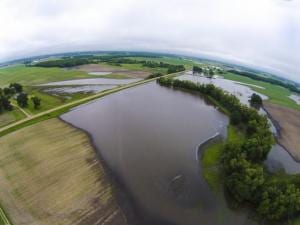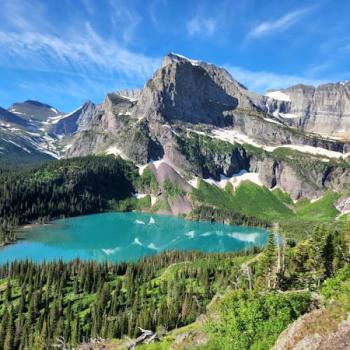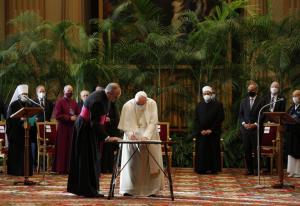
Some Americans, including in my town in Southern Minnesota, who are not necessarily climate-change deniers, still say, “Why should we be the ones to make all the sacrifices. Let other countries do their part.” Well, other countries are ahead of us in combating climate change. Meanwhile the United States under Donald Trump will back out of the 2015 Paris Climate Change Agreement. That is the back story of COP25 the meeting of nearly 200 countries in Madrid.
Here’s the good part: Seventy-three countries, mostly from Africa and the Southern Hemisphere, increased their plans for specific actions to address global heating. But these 73 are responsible for just 10 percent of global greenhouse gas emissions. Eleven countries in Europe have begun their enhanced planning. The European Union plans to reach net-zero in emissions by 2050. That’s the scientists have set for reaching that goal. The United Kingdom among other countries announced a climate emergency.
And the bad part: The U.S. is with nations like Brazil, India, and the Soviet Union that are obstructing negotiations. COP25, the latest of United Nations negotiation sessions, made little progress. High expectations were disappointed mainly by the world’s major climate polluters. It leaves the planet on a warming trajectory of 3 to 4 degrees Celsius by 2100. That’s double the target that the 2015 Paris accord set.
In Minnesota we feel the effects of climate change less than most places. But we’re not immune, even here and even at only one degree of warming since the Industrial age. The Minnesota Pollution Control Agency says:
Across the state, communities and individuals are experiencing higher temperatures, more extreme storms with intense flooding, and changes in our unique and cherished ecosystems.
Winters are shorter, and we’ve had three “thousand year storms” in the last 10 years, says Minnesota meteorologist Paul Huntner.
Churches speak out
Our church leaders are paying attention to the science of global warming. Churches sent representatives to Madrid, including Lutheran, Episcopal, and Catholic delegations. Pope Francis twice intervened with messages calling for “an ecological conversion” and a refocusing of global finances to safeguard the environment. Other church statements:
- The impact of climate change constitutes one of the most critical threats to human life and nature. [It] directly affects the lives of the poor and most vulnerable worldwide. … It is still possible to stay at 1.5 ° C to prevent a climate disaster – but only if we take immediate action.” (Lutheran World Federation)
- From Hurricane Maria, Tropical Cyclone Idai, Hurricane Dorian and Typhoon Hagibis which caused loss of lives and left widespread devastation in Puerto Rico, in Mozambique, Zimbabwe and Malawi, in the Bahamas and in Japan respectively, to ongoing bushfires in Australia and California, to unprecedented flooding in Bangladesh and in Venice, and to the very recent landslide following exceptionally heavy rains in Kenya, the impacts [of climate change] on our communities – especially the poorest and most vulnerable among us – and on the bountiful Creation that God has entrusted to human beings as stewards – are now all too tragically real. … The time for debate and disputation of established scientific facts is long over. The time for action is swiftly passing. (World Council of Churches)
- [C]limate change is a symptom not just of what is happening to the physical world, but of overconsumption, selfishness and apathy. … [P]art of the solution lies with faith leaders who can mobilize their communities through the teachings and actions required to generate this change. … [T]he church remains committed to a swift and just transition away from fossil fuels and will continue pressing those in power to act. (Episcopal News Service, Dec. 17)
After COP25
The year 2020 is the 5th year since Pope Francis’s encyclical Laudato Si, on Care for Our Common Home. It’s also 5 years since the Paris Climate Agreement. In those years we’ve seen powerful movements for climate justice by churches, nonprofits, and even youth. But inertia and financial interests stuck in the status quo are also powerful forces. COP26 in Scotland next November will take place amid these clashing forces and the increasingly clear calls of the world’s scientists and moral leaders.
Pope Francis has magnified, but not actually changed, what the previous two popes said about climate change. Namely, we have a moral obligation to the ones who will suffer most from it. These are the poor and generations to follow us. We need to transform development and consumption models, he says. But is there, he wonders, the political will to act according to “the timeline required by science.”
Image credit: Minnesota Pollution Control Agency












